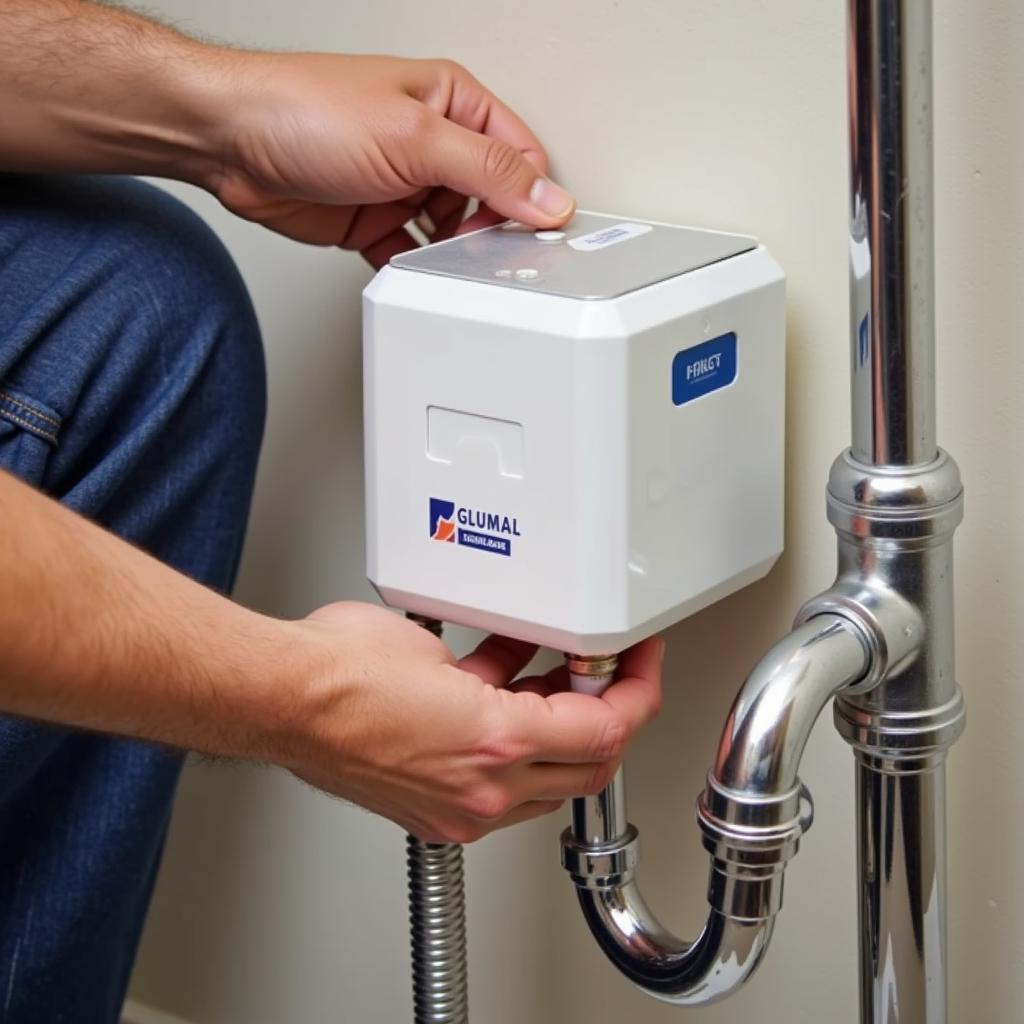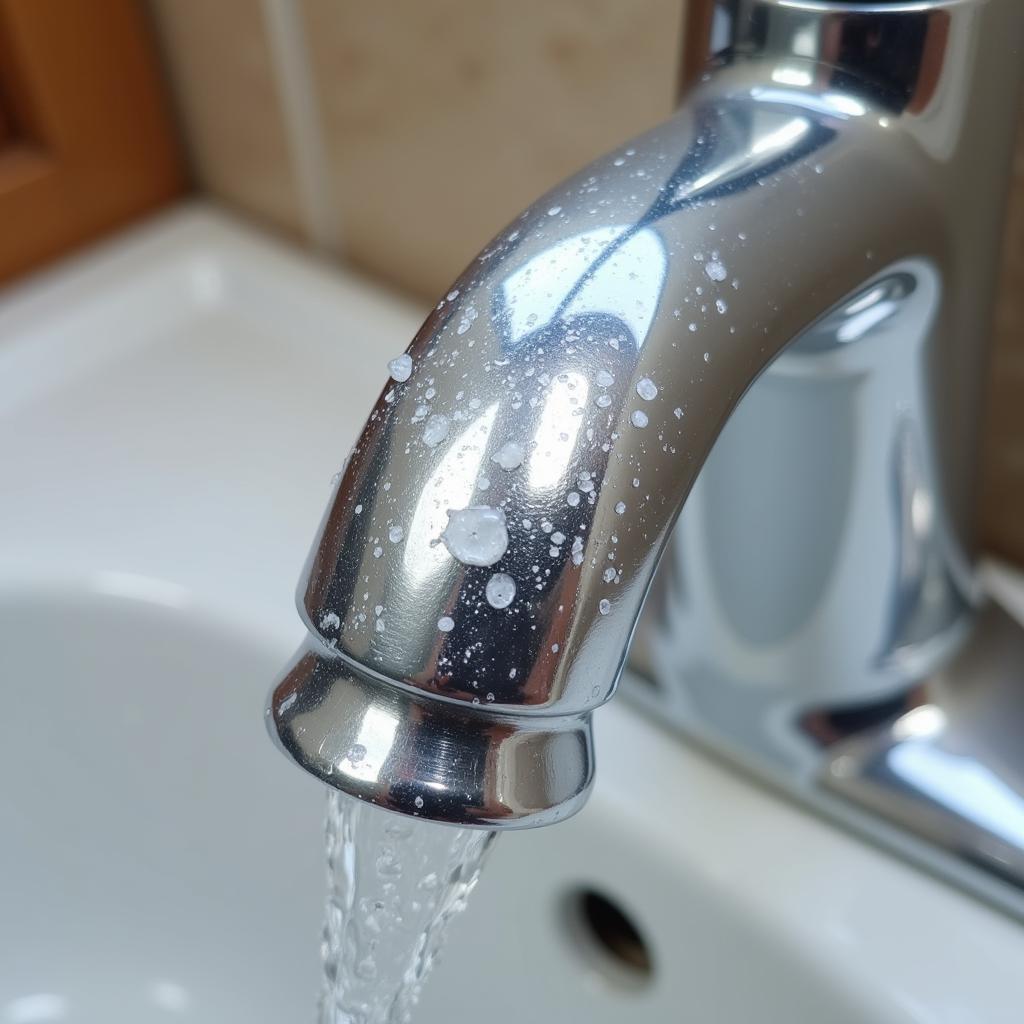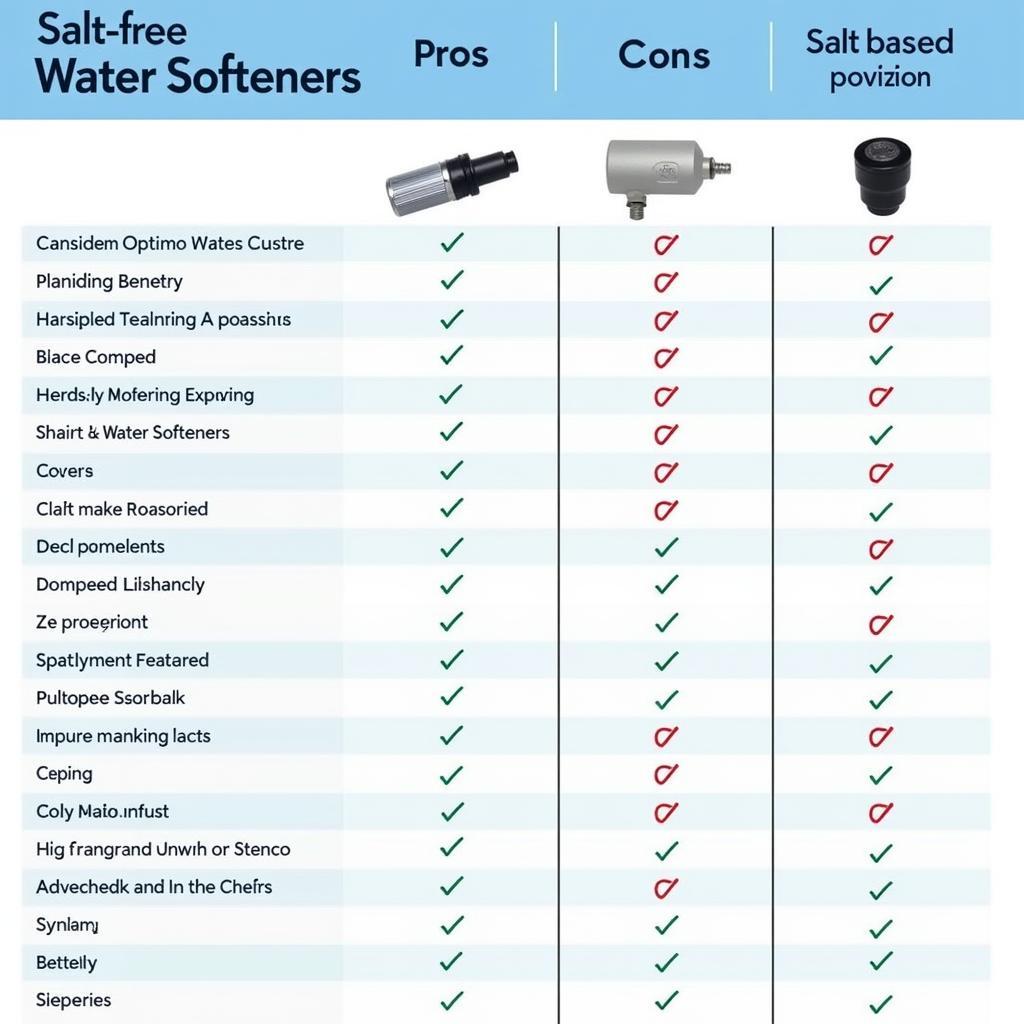Salt-free water softeners have been gaining popularity as an alternative to traditional salt-based systems. But are they right for you? Understanding the pros and cons of salt-free water softeners can help you make an informed decision for your home and water needs.
How Salt-Free Water Softeners Work
Unlike salt-based systems that remove minerals, salt-free water softeners, also known as water conditioners, use a different approach. Instead of removing minerals, they alter their form, preventing them from sticking to surfaces and causing hard water issues.
There are two main types of salt-free water softeners:
-
Template Assisted Crystallization (TAC): These systems use a medium, often ceramic beads, to transform dissolved hard minerals like calcium and magnesium into microscopic crystals. These crystals remain suspended in the water and are flushed away, preventing them from adhering to pipes and appliances.
-
Electromagnetic Water Treatment: These systems use electromagnetic waves to disrupt the bonding properties of hard water minerals. As the water flows through the magnetic field, the minerals lose their ability to stick together and form scale.
Pros of Salt-Free Water Softeners
1. Eco-Friendly: Salt-free water softeners don’t use any salt, eliminating the need to discharge brine water into the environment. This makes them a more environmentally friendly option, especially in areas with water conservation concerns.
2. Healthier Choice: Without the added sodium from salt-based softeners, salt-free systems provide water that is healthier for individuals on sodium-restricted diets. This is also beneficial for plants and lawns, as they are not exposed to excess salt.
3. Low Maintenance: Salt-free systems require minimal maintenance compared to salt-based units. There’s no need to add salt regularly, monitor salt levels, or deal with messy brine tank cleanings.
4. Easy Installation: Most salt-free softeners install easily on your main water line, often without requiring plumbing modifications. This makes them a convenient option for DIY installation or for renters who want a temporary solution.
 Salt-Free Water Softener Installation
Salt-Free Water Softener Installation
Cons of Salt-Free Water Softeners
1. Not True Softening: While salt-free systems prevent scale buildup, they don’t actually remove hard water minerals. This means you won’t experience the same “slippery” feel of softened water from a salt-based system.
2. Effectiveness Varies: The effectiveness of salt-free softeners can vary depending on the water hardness level and the type of system used. In some cases, they may not completely eliminate hard water problems like soap scum and mineral buildup.
3. Limited Impact on Existing Scale: Salt-free water softeners are primarily preventative. While they can prevent further scale buildup, they are not as effective at removing existing scale deposits.
 Water Scale Buildup on Faucet
Water Scale Buildup on Faucet
Salt-Free Water Softener vs. Salt-Based Water Softener: Which Is Right for You?
Choosing between a salt-free water softener vs salt water softener depends on your priorities and water conditions:
Choose Salt-Free If:
- You have mild to moderate hard water.
- You prioritize eco-friendliness and sodium-free water.
- You want a low-maintenance option.
Choose Salt-Based If:
- You have very hard water with severe scale problems.
- You prefer the feel of truly softened water.
- You need a solution to address existing scale buildup.
 Comparing Water Softener Types
Comparing Water Softener Types
Conclusion
Salt-free water softeners offer a compelling alternative to traditional systems, especially for those seeking eco-friendly and low-sodium solutions. However, it’s essential to weigh the pros and cons of salt-free water softeners to determine if they align with your specific needs and water conditions. By carefully considering your options and understanding the technology, you can make an informed decision to enjoy the benefits of better water quality in your home.